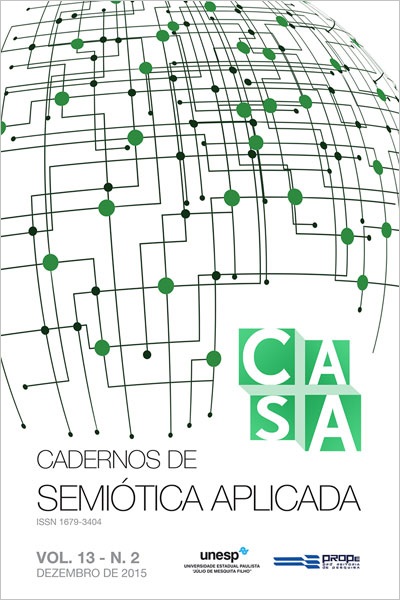BETWEEN THE NETWORK AND THE STREET: A SEMIOTIC ANALYSIS OF CONTEMPORARY POLITICAL DEMONSTRATIONS
DOI:
https://doi.org/10.21709/casa.v13i2.7905Keywords:
Semiotic Practices, Cyberculture, Free Fare Movement, Contemporary PoliticsAbstract
The protests throughout Brazil in June 2013, triggered by the Free Fare Movement, belong to a wave of demonstrations happening recently in the world that have outlined new ways of actions and political interactions with innovative characteristics. Among them it can be highlighted the use of cyberspace as part of their organization, maintenance and dissemination. In this context, the current study proposes to analyze how a hybrid militant path operates, a continuum between the street and the network in order to verify the role played by the network and what it can reveal about this contemporary militancy. Therefore, it is analyzed the page passelivresp on Facebook, the official profile of FFM of São Paulo. The theoretical basis for the research is the discursive semiotics, more specifically the perspective of semiotic practices developed by Fontanille, a proposal for extension of the plan of expression approach that allows the study of the entire militant path. In addition, Landowski’s regimes of interaction contribute to a greater understanding of the new political practices. Results show that street actions are presented as intense practices, which move the militancy; in turn, the network, with its potential, broadens and resignifies these practices.Downloads
Published
10/05/2016
Issue
Section
DOSSIÊ “Enunciação e interação nos discursos na internet”
License
The authors of the approved papers agree to grant non-exclusive publication rights to CASA. Thus, authors are free to make their texts available in other media, provided that they mention that the texts were first published in CASA: Cadernos de Semiótica Aplicada. Besides, they authorize the Journal to reproduce their submission in indexers, repositories, and such. Authors are not allowed to publish the translation of the published paper to another language without the written approval of the Executive Editors. The authors are totally responsible for the content of the published work.

